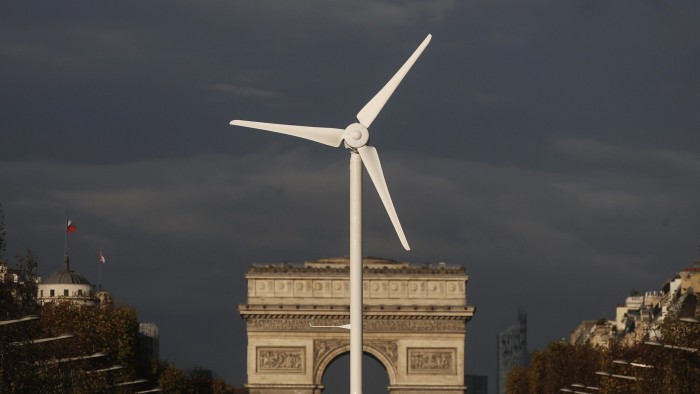COP21: Nicaragua refuses to make climate pledge at Paris talks

Roula Khalaf, Editor of the FT, selects her favourite stories in this weekly newsletter.
It has been a while since the 6m people of Nicaragua did much to attract global attention.
But the Central American state burst on to the world stage at this week’s climate change conference in Paris when it became the first nation to declare it had no intention of publishing a national plan to combat global warming.
That would be “a path to failure” said Paul Oquist, Managua’s lead negotiator, explaining his country did not want to be a part of a process dooming the world to “the hell” of dangerous global warming.
More than 180 of the 195 countries involved in the Paris talks have volunteered a plan to combat climate change since March as part of an effort to forge a new global accord to stop global temperatures rising more than 2C from pre-industrial times.
Their number includes the strife-torn Democratic Republic of Congo, Liberia, which was struggling this year with Ebola, and most of the world’s poorest countries, from Malawi and Burundi to Haiti and Niger.
But Mr Oquist, who first revealed his country’s stance to the Climate Home online news site, told reporters the voluntary nature of the pledges meant global temperatures were bound to rise.
“We do not want to be accomplices to the death, damages and destruction that a 3C or 4C world will represent,” he said.
Managua’s snub to the Paris conference, known as COP21, is unlikely to interrupt the meeting’s central aim of striking the first new UN climate agreement in 18 years. Nicaragua accounts for just 0.03 per cent of global greenhouse gas emissions.
But it sparked a terse response from some conference goers, including Monica Araya of Costa Rica, which shares a border with Nicaragua and is a pioneer of green policies such as a carbon tax.
“This is the wrong COP to seek attention without putting solutions on the table,” said Ms Araya, a former Costa Rican negotiator. “Paris cannot be kidnapped by a few countries playing ideological games.”
Nicaragua’s stance was disconnected from what developing countries are doing in practice, she said, adding her country’s climate plans included electric trains and other measures that would deliver tangible benefits to people and companies.
As of Sunday, Nicaragua was one of nine countries yet to submit a climate pledge.
The others were: oil-rich Venezuela, North Korea, Libya, East Timor, Nepal, Uzbekistan, St Kitts and Nevis and Panama.
Panama delegate, Rosilena Lindo, said her country had been working hard on its climate strategy, which includes plans to boost its solar and wind power, and would publish it as soon as it had finished a round of consultations.
“It’s a big decision and we have to be very sure that all the population is committed to it and accepts what we are proposing,” she told the FT.
Listen to the FT News podcast
Comments